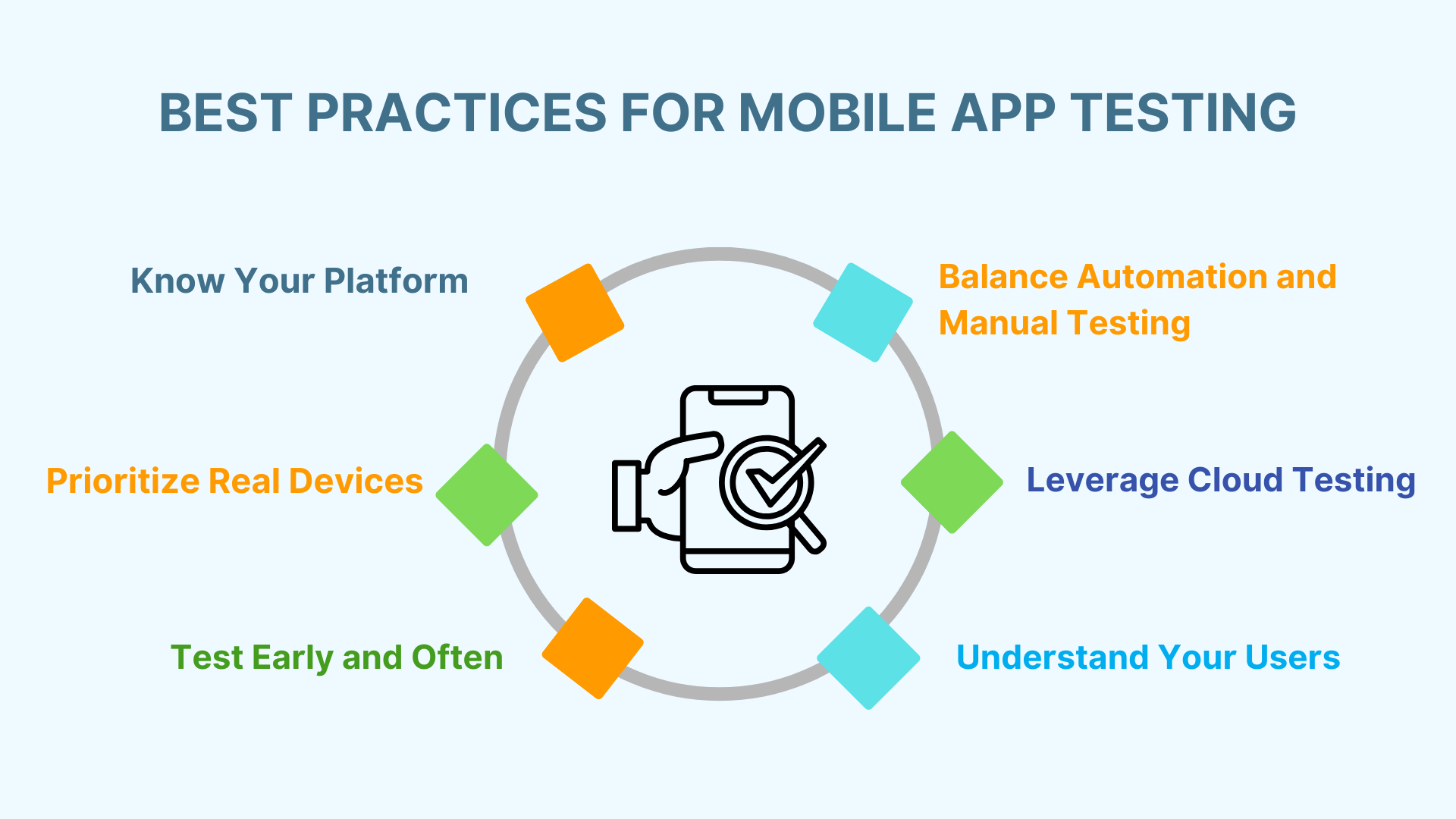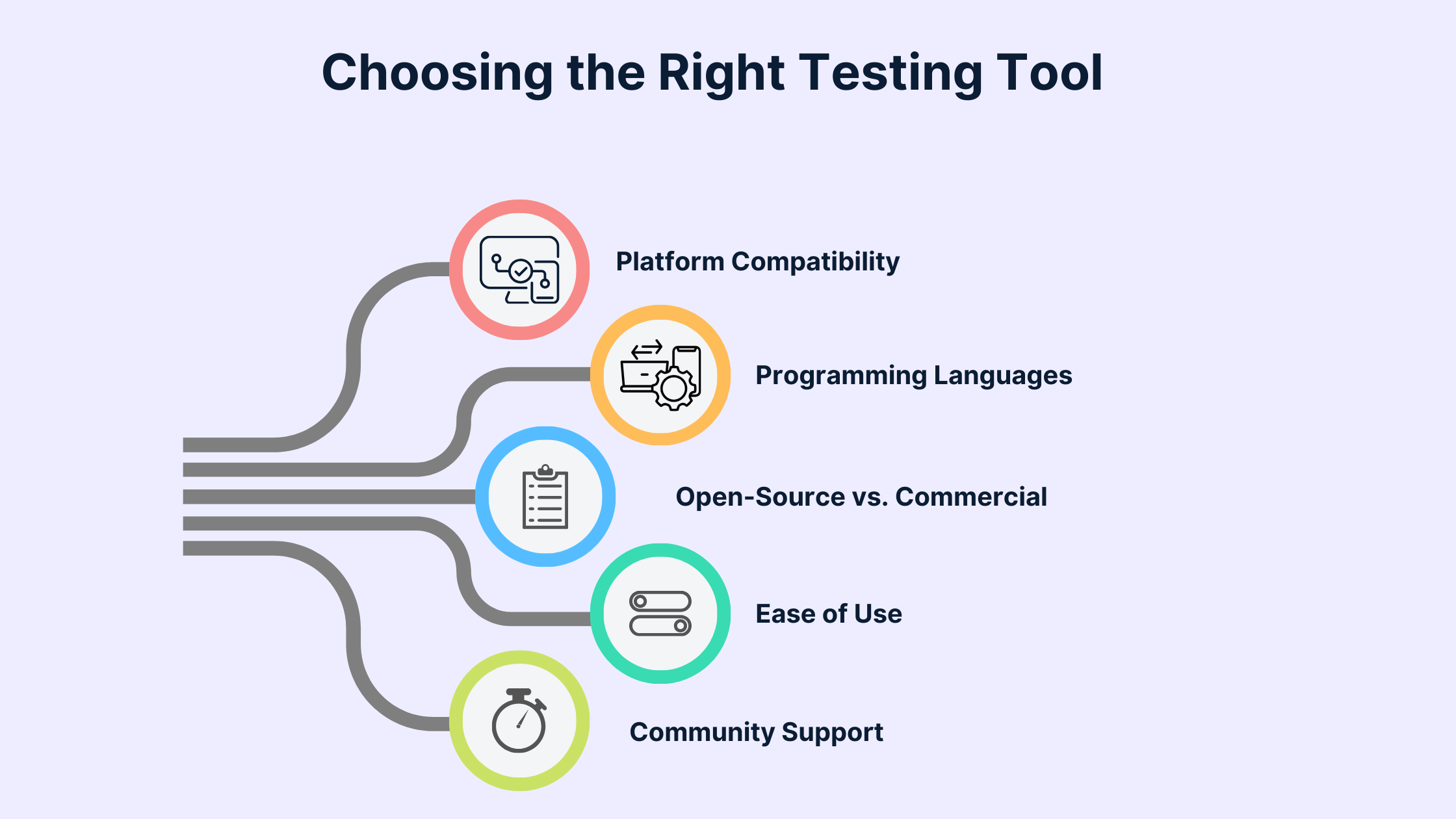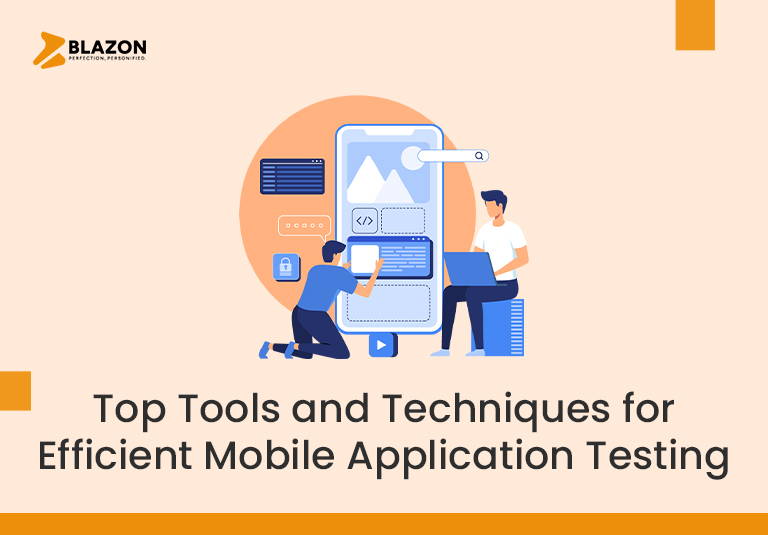The market for mobile applications is growing since there are already over 6.4 billion smartphone users worldwide (and that number is expected to rise to 7.7 billion over the next four years!). As a result, companies are under pressure to develop and deliver mobile applications with flawless user experiences. However, creating an application that functions well across a wide range of devices and operating systems can be difficult.
Mobile application testing services might be a great tool in your toolbox To keep up with this digital transition, developers and testers should employ reliable mobile app testing tools that expedite the process, boost productivity, and find flaws early. This article examines the tools and methods for efficient mobile application testing to enhance app quality, performance, and user pleasure.
Key Challenges in Mobile App Testing
Testing mobile apps is crucial, but it has its challenges. The following are some major obstacles in mobile application testing services:
- Device Diversity: Making sure your program functions smoothly on all of the numerous Android and iOS devices with different screen sizes, resolutions, and hardware is a significant task.
- Network Variability: Mobile networks are constantly evolving. Your app needs to work perfectly over Wi-Fi, 4G, 5G, and 3G, with varying speeds and stability.
- OS fragmentation: Users utilize many iterations of iOS and Android. Testing across these variances provides compatibility and a consistent user experience.
- User Expectations: Users desire applications that are responsive, fast, and easy to use. To meet these standards, extensive performance and usability testing is required.
Best Practices for Mobile App Testing

Testing mobile apps can be challenging, but with the correct strategy, your app will succeed. The following best practices can help you focus your testing strategy:
- Know Your Platform
Depending on whether your software is web-based, hybrid, or native, adjust your testing strategy accordingly. Everyone has different factors to take into account, such as browser variances and device compatibility.
- Prioritize Real Devices
Nothing compares to testing on actual devices, even though emulators and simulators are useful for preliminary testing. This provides you with the most realistic view of user experience and performance.
- Test Early and Often
Include testing at every stage of your development process. This reduces the need for later, expensive rework by identifying and resolving problems early.
- Balance Automation and Manual Testing
To save time and money, automate repetitious tests. Manual testing is still essential, though, for assessing user experience and investigating edge cases.
- Leverage Cloud Testing
Access to a wide variety of real devices is made possible by cloud-based platforms such as Katalon, and TestCloud, which eliminate the burden of managing physical devices and allow thorough testing across various configurations.
- Understand Your Users
Prioritize your testing efforts by analyzing user behavior. Pay attention to the user flows and features that are most important to your target market. Tools such as Mixpanel can yield insightful information.
You may increase user satisfaction, optimize your testing procedure, and improve the quality of your app by putting these best practices into effect. Consider collaborating with a respectable mobile app testing services provider if you require professional help.
Top Mobile App Testing Tools
The tools you employ to test your mobile app may determine its success. Here are some excellent suggestions to improve your testing process:
- LambdaTest
The cloud-based platform LambdaTest offers an extensive toolkit for testing online and mobile applications. You can test your apps across several hardware and operating systems using its simulators, and actual device cloud. LambdaTest supports automated testing with well-known frameworks such as Appium, Espresso, and XCUITest. Its AI-powered features offer useful insights regarding application performance and facilitate testing.
- Espresso
Espresso is a Google-owned open-source framework for Android UI testing. Its lightweight and effective design allows for quick and dependable test execution. Espresso tests enable rapid feedback on code changes because they run immediately on the device. It is a well-liked option for developers who need to create succinct and efficient user interface testing for their Android apps.
- XCUITest
Apple’s standard framework for testing iOS applications’ user interfaces is called XCUITest. Because of its smooth integration with Xcode, developers can easily create and run UI tests. Your iOS app will work properly on a variety of devices and iOS versions thanks to XCUITest’s strong and dependable approach to automating user interface interactions.
- Robotium
One such common tool is Robotium, which is an open-source framework to test Android native and hybrid applications. Automated testing is made simple by its straightforward API for creating test cases. Robotium can help you guarantee the quality of your Android apps by managing several tasks within an app and automating different user interactions.
- ACCELQ
ACCELQ is a cloud test automation platform for continuous testing with codeless automation for web, API, and mobile. It is accessible to testers with different levels of coding expertise thanks to AI-powered capabilities that expedite test creation and execution. ACCELQ offers a single platform to handle all of your testing requirements and supports testing on both iOS and Android.
These are only a few of the effective mobile testing tools that can be used for testing applications and to simplify your life as a mobile app tester. While selecting the best tool for you, keep in mind your budget, platform choices, and particular needs.
Choosing the Right Testing Tool

Choosing the best mobile app testing tool for your purposes is essential, as there are many options available. To assist you with the selection process, below is a guide:
- Platform Compatibility: Determine which platforms (iOS, Android) your software supports first. Make sure the tool you select has thorough testing features for those platforms.
- Programming Languages: Look over the programming languages you utilized to create your app. Choose a tool that works well with your tech stack so generation and integration go smoothly.
- Open-Source vs. Commercial: Consider your needs and budget. While commercial solutions frequently offer more sophisticated functionality and specialized support, open-source technologies are more affordable.
- Ease of Use: Take the tool’s learning curve into account. For effective test creation and execution, pick a tool that complements the expertise of your team and has user-friendly features.
- Community Support: When looking for help or troubleshooting problems, a robust community or committed support from the tool vendor can be quite helpful.
You can improve your testing strategy and produce high-quality apps by carefully weighing these variables and selecting the best mobile app testing tool. Consider collaborating with a top supplier of mobile app testing services if you require professional help.
Conclusion
To make sure your app stands out and succeeds in the cutthroat app industry of today, thorough mobile application testing is crucial. You may improve user experience, cut expenses, and protect your brand’s reputation by implementing the strategies and technologies described in this post. Don’t forget to use cloud-based platforms like LambdaTest for efficiency, prioritize actual device testing, and choose the appropriate testing tools for your requirements.
Consistent testing is still essential, whether you choose open-source frameworks like Espresso and XCUITest or all-inclusive solutions like ACCELQ. Your testing strategy can be further optimized by collaborating with the top software testing company. Their proficiency in QA software testing and mobile app testing services may assist you in navigating the challenges of network unpredictability, device fragmentation, and changing user expectations.
Effective mobile application testing services ultimately result in increased user happiness and a more robust market presence, making them an investment in the success of your app.




